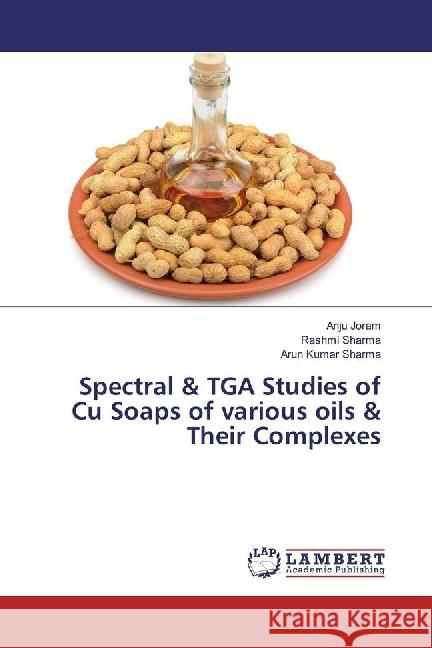Spectral & TGA Studies of Cu Soaps of various oils & Their Complexes » książka
Spectral & TGA Studies of Cu Soaps of various oils & Their Complexes
ISBN-13: 9783659667695 / Angielski / Miękka / 2017 / 224 str.
Spectral & TGA Studies of Cu Soaps of various oils & Their Complexes
ISBN-13: 9783659667695 / Angielski / Miękka / 2017 / 224 str.
(netto: 298,47 VAT: 5%)
Najniższa cena z 30 dni: 313,39
ok. 10-14 dni roboczych
Bez gwarancji dostawy przed świętami
Darmowa dostawa!
Surfactants most characteristic phenomenon of micellization in the bulk phase, as well as their ability to be accumulated at an interface are of immense theoretical, applied and biological interests as indicated by large number of publication of papers. The tendency of Cu soaps have complex formation with compounds containing donor atoms like N, S, O, Br, etc. as benzothiazole and other related compounds play significant role in biological activities. Thermal degradation analysis will also provide significant information about the removal of the natural soap segment from the environment. The studies will be very important for pollution controlling and in the field of Green Chemistry.The present work highlights- 1.Synthesis of Copper (II) soaps derived from edible oils i.e. Groundnut & Sesame and non-edible oils i.e. Neem & Karanja. 2.Synthesis of complexes with 2-amino-6-methyl Benzothiazole 3.Spectral studies (IR, NMR and ESR) have been carried out to understand the structural insight of the soaps and complexes. 4. TGA of Cu(II) soaps and their complexes derived from various oils was done to confirm the thermal decomposition.











